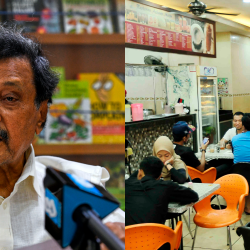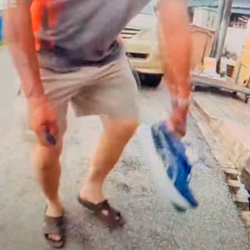What you need to know about the coronavirus right now
July 8 (Reuters) - Here's what you need to know about the coronavirus right now:
Neurological complications
Scientists warned on Wednesday of a potential wave of coronavirus-related brain damage as new evidence suggested COVID-19 can lead to severe neurological complications, including inflammation, psychosis and delirium. A study by researchers at University College London (UCL) described 43 cases of patients with COVID-19 who suffered either temporary brain dysfunction, strokes, nerve damage or other serious brain effects.
Adrian Owen, a neuroscientist at Western University in Canada, said the emerging evidence underlined the need for large, detailed studies and global data collection to assess how common such neurological and psychiatric complications were.
He is running a international research project at covidbrainstudy.com where patients can sign up to complete a series of cognitive tests to see whether their brain functions have altered since getting COVID-19.
'Emerging evidence' of airborne transmission
The World Health Organization on Tuesday acknowledged "evidence emerging" of the airborne spread of the novel coronavirus, after a group of scientists urged the global body to update its guidance on how the respiratory disease passes between people.
Maria Van Kerkhove, technical lead on the COVID-19 pandemic at the WHO, said the WHO would publish a scientific brief summarising the state of knowledge on modes of transmission of the virus in the coming days.
Any change in the WHO's assessment of risk of transmission could affect its current advice on keeping 1-metre (3.3 feet) of physical distancing. Governments, which rely on the agency for guidance policy, may also have to adjust public health measures aimed at curbing the spread of the virus.
Marshalling the forces
While a laggard in the global vaccine industry, China, where the new coronavirus is thought to have originated, has brought state, military and private sectors together in a quest to develop a vaccine to help combat COVID-19 which has killed over 500,000 people worldwide.
China's use of command economy-type tools is so far yielding results. A state-controlled entity, for example, completed two vaccine plants at what it called the "war time speed" of a couple of months, while state-owned enterprises and the military have allowed experimental shots to be used on staff.
It is also focused mainly on inactivated vaccine technology - a technology that is well known and has been used to make vaccines against diseases such as influenza and measles - something which could raise the chances of success.
Bolsonaro tests positive
Brazilian President Jair Bolsonaro said on Tuesday he tested positive for the novel coronavirus after months minimizing the severity of the pandemic and defying medical experts, even as the virus has killed more than 66,000 people in his country.
Announcing his infection, the 65-year-old former army captain continued to dismiss the dangers of the virus and credited unproven treatments for his mild symptoms, echoing his political role model, U.S. President Donald Trump.
Finishing the interview with three TV channels, Bolsonaro stepped back and removed his mask to reveal a smile, adding: "You can see from my face that I'm well and I'm calm." (Compiled by Karishma Singh; Editing by Lincoln Feast.)






